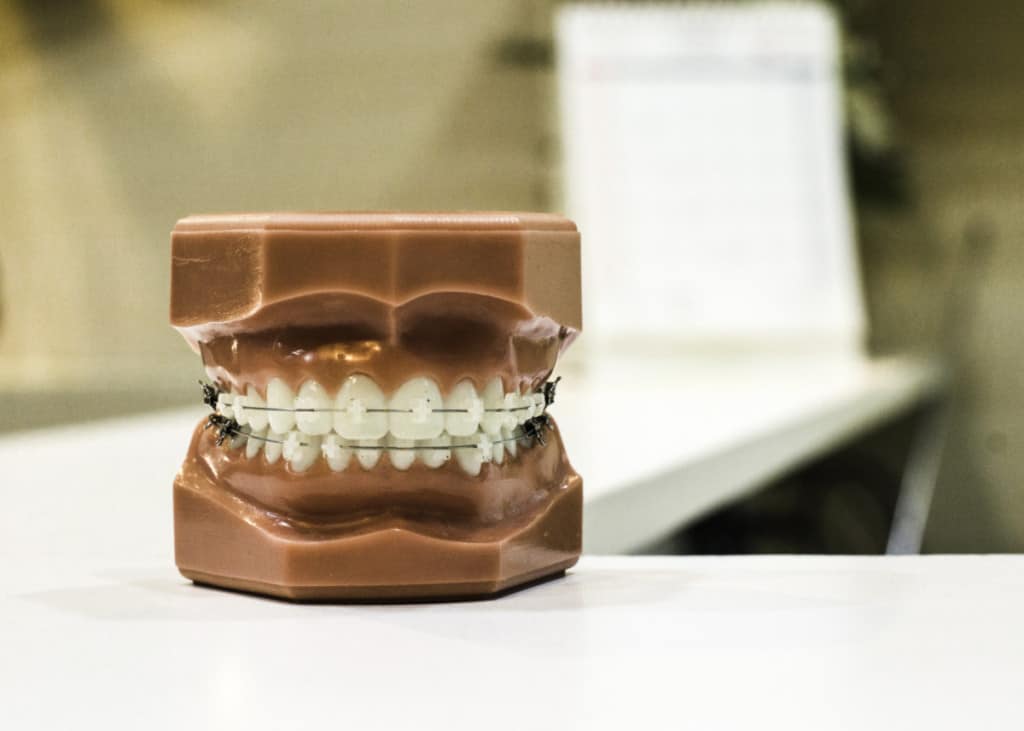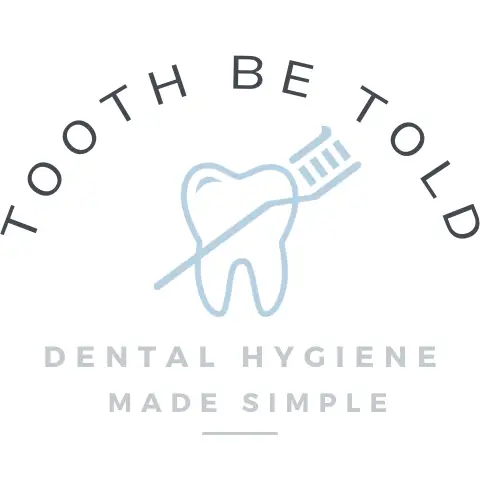Going through orthodontic treatment is not easy and a hard commitment to stay compliant with. I had braces twice, so I understand the struggle. Now, as a dental hygienist, I have patients in my chair who have to wear rubber bands, and I have gotten the question if they double up on their rubber bands, will it make the treatment go faster?
Doubling up rubber bands on braces causes too much pressure and force on the teeth and can cause irreversible bone and tooth damage and slow treatment time. Root resorption can occur, shortening the teeth’ roots, decreasing the tooth’s stability in the jaw bone and resulting in premature tooth loss.

Everyone wants to be done with their orthodontic treatment, whether it’s Invisalign or braces. No one wants to wear braces longer than they have to!
In this post, I go over why doubling up on rubber bands can slow your treatment, cause irreversible damage to your mouth, and I explain different things that you can do to get those braces/aligners off your teeth for good as soon as possible!
Read now: Braces: What Age Is Too Late? Dental Hygienist Explains!
Doubling rubber bands; Bone and tooth loss, root resorption
Wearing the elastic bands consistently is critical. To have the teeth move as the dental professional wants them to, you have to wear the elastics for at least 20 hours, ideally 22 hours a day.
It is easy to forget to put the elastics on, and depending on where the elastics are in the mouth, they can interfere with eating and speaking, so people remove them for more extended periods.
It is understandable when you have been supposed to be wearing the elastics consistently, and you don’t; right before your appointment, you try and make up for the lost time by doubling up on the elastics to make the teeth move faster and appear like you have been wearing them.
I have seen people commenting on Reddit that they have doubled up on their rubber bands, and I cringe and worry about their teeth. I want to try and explain to them and you here what can happen to your teeth and bone when you double up the elastics.
Not all elastic bands are equal
Moving a tooth requires a certain amount of continuous force and pressure, and not all elastic bands are made equal. Some elastics are more robust and wider in diameter and will put more force on the teeth vs a thin and stretchy elastic.
The elastics that the dentist/orthodontist gives you are very specific, and the dentist/orthodontist chose the thickness for a reason.
Think of it is as a weight/dumbbell and let's say you can safely bicep curl 20 pounds as your max weight. If you all of a sudden double up to 40 pounds, there is a high chance you could hurt yourself, and cause damage to the hand, arm and shoulder because you have not gradually built up your strength to safely lift 40 pounds.
It is essential for us to not overload the forces on our teeth because, like weightlifting, consistency and gradual increases are imperative to prevent injury and damage to our body. And with time, we will see our desired result and goal.
What happens if you double up your elastics?
By doubling up your rubber bands on braces, you are at risk for;
- teeth to become mobile
- impair tooth movement (slows the progression of treatment) but can also cause too much movement (depending on scenario)
- bone loss around teeth
- root resorbtion (root become shorter and less stable in the bone)
- nerve damage to teeth
- gum recession

Teeth become mobile because there is a healthy amount of bone loss happening on one side of the teeth for the teeth to move. The teeth are surrounded by ligaments that act as springs and attach the teeth to the bone and gum tissue.
When these ligaments have pressure put on them, it will trigger the bone to break down on one side of the teeth and bone to build on the other side.
If teeth move too fast, the body doesn’t have enough time to build the bone on the side from which the teeth have moved, causing bone loss. Bone loss around the teeth from the teeth moving too fast can later contribute to gum disease.
Also, moving the tooth too fast can trigger the root to start and resorb, fading away, causing the root underneath the gum line to become much shorter.
Read now: How Long After Braces Do Teeth Move? Hygienist Explains!
Ultimately, there are just too many risks and downsides to even consider doubling up the elastics on braces.
To be honest, it is hard to notice the damage from doubling up on the elastics until we take x-rays to see the bone and roots of the teeth. Because we cannot immediately see the damage of doubling up on elastics, we can get a false sense of security that it is okay because we cannot see it.
Such as what happened to one of my patients, and I will tell you the story below.
In my dental chair;
I have a patient that had root resorption from braces. It is hard to say what exactly it is from, but most likely, the tooth was moved too quickly, and the trauma caused the root to start to resorb and essentially dissolve away.
After she got her braces off, I took a large x-ray that showed all the teeth in her mouth along with her jaws and sinus cavities. I noticed right away that a tooth’s root resorbed and was much shorter than the adjacent teeth.
The root resorbed so much that she will lose the tooth because there is not enough root in the bone of the jaw to hold it in. It is only a matter of time before the tooth becomes so loose it will come out.
It is so unfortunate to see such a young girl lose a tooth near the front of her mouth.
We are planning on dental implant therapy for her in the future when the tooth is loose enough, and she has reached an age when a dental implant can be safely done.
What if my dentist/orthodontist tells me to double up on elastics?
The only time to ever double up on elastics is if your dental professional has told you to do so. For example, if you just started wearing elastics, they may have given you the lightest/weakest elastic, and it may be safe to add on some pressure.
But in general, they will give you the appropriate strength of elastic needed. However, I would still question the dental professional if they told me to double up on the elastics and say that I have read and heard it is not good for the teeth.
If you use really strong elastics, doubling up will do more damage than doubling up on really light elastics. Every patient’s situation will be different, and that is why following the instructions of your dental professional is so important.
How do you speed up the process of your braces?
You cannot speed up the process of moving teeth in the mouth, but by adhering to the list below, you can promote healing and avoid unforeseen issues that will extend the treatment duration.
The best ways to get your braces off earlier;
- Wearing elastics for at least 20-22 hours a day
- Great oral hygiene (flossing, brushing, using Waterpik)
- Follow treatment plan provided by dental professionals
- Eat a healthy diet (nutritient dense with vitamins/minerals to help the body heal)
- Avoid damaging braces by avoiding foods that can break brackets off teeth
- carrots
- hard candy
- popcorn
- thick bread sanwhichs (tearing motion)
- Maintain dental appointment schedule. Book multiple in advance to avoid scheduling issues and delayed appointments
I have a friend going through Invisalign who never wears his trays. I have told him on multiple occasions that he needs to be wearing them more often, or he’s just not going to see results. It is a shame when you want to see success in someone’s treatment, and they are just not following through.
Because treatment success depends on patient adherence, I have conversations with my patients who are thinking of going through orthodontic treatment. I am frank about the pros and cons of both braces vs Invisalign.
I always tell my patients that if they are not committed to wearing the Invisalign trays/aligners for at least 20-22 hours a day, there is no point in getting Invisalign. It is better to have braces attached to the teeth 24 hours a day and cannot be removed or forgotten about.
Read now: White Spots from Braces; Are They Permanent?
Again, please don’t double up your elastic bands if you haven’t been advised to by your dental professional.
I hope I have a great day,
Holly 🙂


